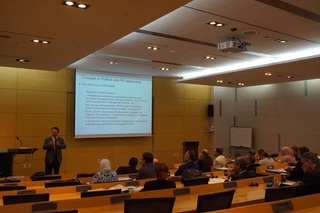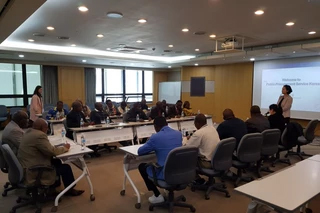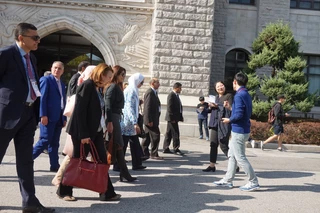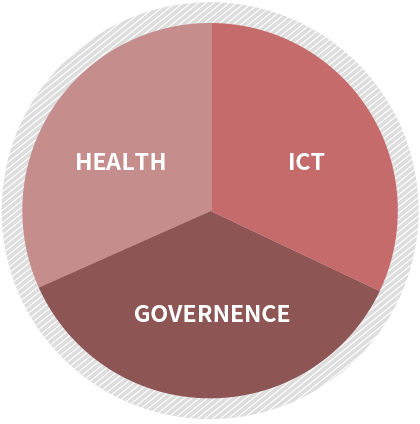Business Overview
INTRODUCTION

CAPACITY BUILDING AND DEVELOPMENT PROGRAM
It is a human resources development project for public officials, engineers, researchers, and policy makers in developing countries to nurture human resources that will lead economic and social development in developing countries.

RESEARCH
Research into effective development cooperation projects for economic growth and social development in developing countries, and research on national development strategies in Korea will be sought for practical ways to apply them to the development of developing countries.

PROJECT
IIDC's project project is a project to support the cooperation of the physical facilities such as buildings, facilities and equipments, the dispatch of experts, and the invitation of trainees for many years (2 ~ 5 years) in order to contribute to the economic, social development and welfare improvement of the partner countries.
It is a comprehensive collaborative business tool that systematically promotes the entire process from discovery, planning, implementation, evaluation and evaluation of business.
BUSINESS OVERVIEW

HEALTH
- More than 95% of all children under 5 years of age and more than 99% of maternal deaths occur in developing countries, and the incidence of diseases such as HIV / AIDS, malaria and pneumonia is also concentrated in developing countries.
- Through personal health, human life and sustainable development are possible. Therefore, health and medical field is one of the key areas of development cooperation.
GOVERNENCE
- Public administration refers to the overall structure related to the distribution and management of political, economic and social resources of a country. We focus on achieving the goals of economic and social development, social order and peace, political freedom and participation.
- Governance is a concept that exercises influence throughout society. It is a basic task of development that should be prioritized for development and investment in other fields.
ICT
- The rapid spread of information technology around the world deepens the gap between those who have information and those who do not. The information gaps lead to weaker competitiveness of countries with low access to information and deepening gap between rich and poor.
- In the knowledge and information society, the improvement of information access through training of IT manpower and technology transfer is expected to contribute to wider and sustainable development and poverty alleviation by acting as a catalyst for income increase, job creation, education and health service improvement and social welfare provision.